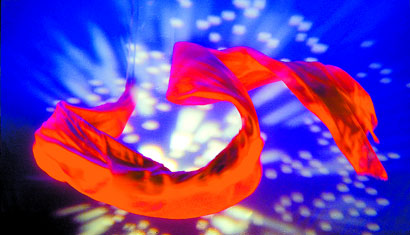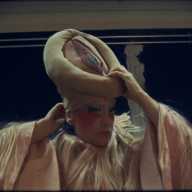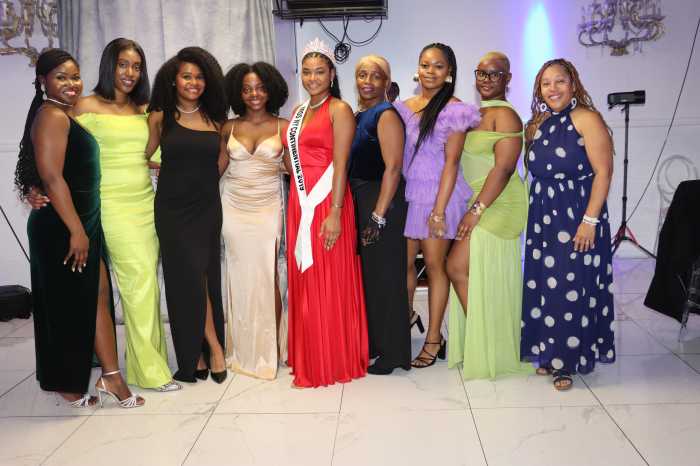Basil Twist presents an exhilarating aquatic Rorschach
At the end of Basil Twist’s “Symphonie Fantastique,” there is only one feeling—exhilaration. On its most elementary level, you have just spent an hour watching a team of people drag fabric and other materials around a 1,000-gallon fish tank while listening to Berlioz, but on an artistic level, you have experienced magic. It is the combination of light, movement and music that transcends the literal and touches the viewer on a very fundamental level.
As someone who has always loathed Disney’s “Fantasia,” I was a bit leery about what to expect in what was billed as “an underwater puppet show set to classical music,” but from the moment the diminutive but richly detailed traditional theater curtain rose on the tank, I was transfixed. There are moments of wit, drama and passion all seamlessly melded together, and there is a joyful spirit of experimentation about the enterprise that is inherently human and highly theatrical.
The artistry is constantly astonishing, as is the depth of perspective achieved. Part optical illusion and part visual interpretation of music, the piece effectively expands upon typical visual forms and demands to be experienced simply as it is, without comment, analysis or explanation. Don’t be surprised if it brings up memories and associations—a kind of aquatic Rorschach test. Many of the audience members I spoke to afterwards said that that was their experience as well, which makes this almost perfect theater in that it is an individual experience shared within the context of an audience. Twist’s show is reminiscent of some of the brilliant but seldom produced plays that emerged from the Dadaist movement.
At the end of the show, the audience has the chance to go behind the set and see the mechanics of how it all works and the five puppeteers in wet suits. Rather than spoiling the magic, this gives one a deeper appreciation for the heart and vision that have created this unique and magnificent experience.
Bad theater, on the other hand, runs the gamut from the merely inept to the toxic. Reaching the latter extreme requires a combination of awful script, soulless direction and vacant acting that results in a production painful to watch. Given the rich wells of talent available in New York, when something as epically bad as the Wings Theatre presentation of “Metropolitan Operas” comes along, it is news indeed.
Joe Pintauro has written ten sketches that purport to give insights into different aspects of life in New York through the characters’ interactions. The vignettes are all strung together with a theme of birds, but the string is neither well made nor taut. The characters rarely achieve one dimension and the writing is weak and the characters predictable. The situations are neither real enough to be believable nor absurd enough to be metaphorical. There are bickering couples, insane priests and a prolonged scene of simulated sex that is just plain disgusting.
Pintauro writes about the idea of people instead of people, so the dialogue is generally stilted and feels consistently inauthentic. Worse, director Sarah Rosenberg cannot make even one of the situations believable and so has apparently fallen in love with a piece of fabric that she uses in every scene and has black-clad chorus members wave about between the scenes to obscure the set changes. The play’s bigger problems remain unobscured.
Why Wings has made this the inaugural play of their “Gay Plays Series” is completely baffling. There are only two relatively minor gay characters in the piece, and far from finding something new in the gay experience, we learn that gay men are capable of mourning and that hairdressers are effeminate. This production was not created by Wings itself but by the Millennium Talent Group, an enterprise that says in the program “in theatre there is no right or wrong.” This show stands a sharp rebuttal to that assertion.
Wings has made a judgment error in allowing another company to produce under its banner, but it’s always been a company that takes chances even when they don’t work. Avoid this production, but don’t count out one of the few companies still willing to explore gay issues and keep the inventive spirit of Off-Off Broadway alive.



































